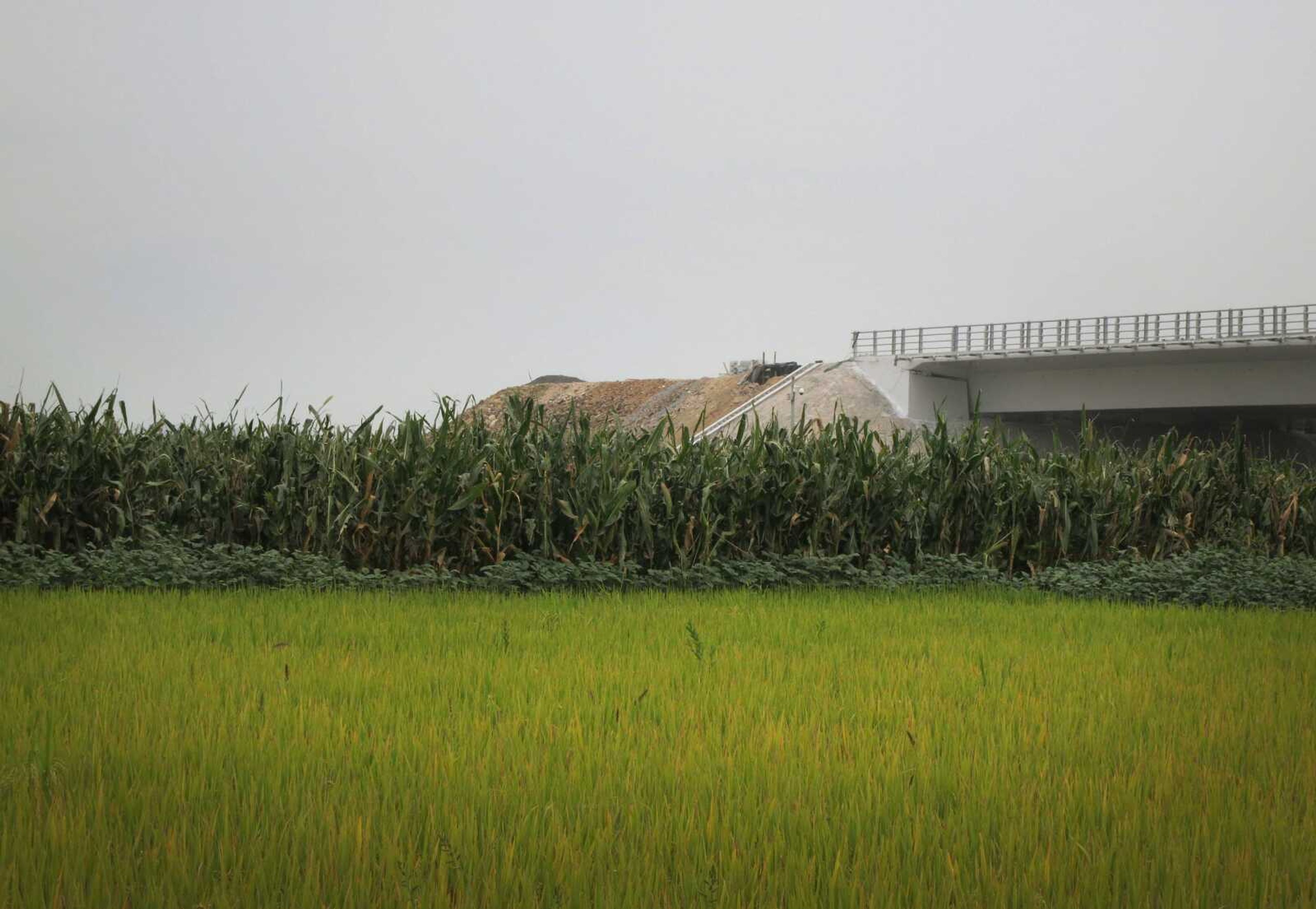China's $350M bridge gets scant North Korean welcome
TOKYO -- The bridge was supposed to be a key link for trade and travel between China's underdeveloped northeast provinces and a touted special economic zone in North Korea -- so key that Beijing sank more than $350 million into it. Now, it is beginning to look like Beijing has built a bridge to nowhere...
TOKYO -- The bridge was supposed to be a key link for trade and travel between China's underdeveloped northeast provinces and a touted special economic zone in North Korea -- so key that Beijing sank more than $350 million into it.
Now, it is beginning to look like Beijing has built a bridge to nowhere.
An Associated Press Television News crew in September saw nothing but a dirt ramp at the North Korean end of the bridge, surrounded by open fields. No immigration or customs buildings could be seen. Roads to the bridge had not been completed.
The much-awaited opening of the new bridge over the Yalu River came and passed Oct. 30 with no sign the link would be ready for business anytime soon. That prompted an unusual report in the Global Times -- a newspaper affiliated with the Chinese Communist Party -- quoting residents in the Chinese city of Dandong expressing anger over delays in what they had hoped would be an economic boom for their border city.
The report suggested the opening of the mammoth, 3-kilometer bridge has been postponed "indefinitely."

Beijing and Pyongyang have made no official comment.
Foreign analysts have suggested the apparent lack of progress might indicate wariness in Pyongyang over China's economic influence in the country, which has been growing in recent years as Pyongyang has become more isolated from other potential partners over its nuclear program, human rights record and other political issues.
Since its founding, North Korea has been cautious of becoming too dependent on of its superpower neighbors, China and Russia, preferring to play each off the other. That pattern seems to be repeating itself now.
The official media, while saying little about business with China, have lately been playing up the importance of improving trade and political ties with Moscow. On Monday, leader Kim Jong Un sent a party cadre as his special envoy to Russia to discuss how to bolster such ties.
Better ties with Moscow could dilute Beijing's leverage over the North, the limits of which became apparent when the North went ahead with its first nuclear test in 2006. Beijing has repeatedly urged North Korea to abandon nuclear weapons, to no avail.
Pyongyang, meanwhile, also has moved quickly ahead with several major construction projects of its own, including the capital's new international airport and high-profile housing projects.
The bridge -- which, from the start, appears to have been of more interest to China than to North Korea -- is intended to provide a new connection between Dandong and the special economic development zone in North Korea's Sinuiju. More broadly, China wants to develop inroads with North Korea that will allow its landlocked northeastern provinces access to North Korean ports so its goods can be exported or shipped down the Chinese coastline more cheaply.
The old bridge, built in 1937 when Korea was a Japanese colony, carries a railway line, as well as cars and trucks. But the vehicle traffic can move only one way at a time. Normally it moves one direction in the morning, and the other in the afternoon.
Officially, at least, Pyongyang says it is still keen on boosting foreign trade in Sinuiju and elsewhere. North Korean officials involved in the Sinuiju project say the new bridge is an important element of an ambitious plan to bring foreign trade and investment to a particularly strategic corner of their country.
Hopes of attracting foreign investment to the 40-square-kilometer (15-square-mile) area of Sinuiju, much of which is still farmland, have yet to materialize. But one of the North Korean government administrators for the new zone, Kim Hak Yong, told APTN that hopes for Sinuiju's future remain high.
Hajime Izumi, a North Korea specialist at Japan's Shizuoka University, said the bridge delays come as Beijing and Pyongyang are rethinking their relationship, shifting from the past focus on alliance and mutual friendship to a more pragmatic one based instead on mutual interest.
He added that North Korea may also simply be waiting for the Chinese to chip in more money.
Eric Talmadge is the AP's bureau chief in Pyongyang. Follow him on Twitter at twitter.com/EricTalmadge.
Connect with the Southeast Missourian Newsroom:
For corrections to this story or other insights for the editor, click here. To submit a letter to the editor, click here. To learn about the Southeast Missourian’s AI Policy, click here.










